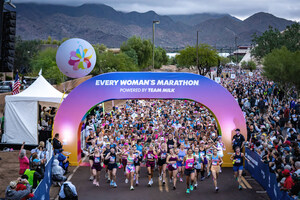
NEW YORK, Aug. 21, 2013 /PRNewswire/ -- Almost two-thirds (57 percent) of Americans say they're trying to get more protein in their diet[1], but most people underestimate the importance of both getting protein at breakfast and the protein prowess of one of breakfast's most popular staples: milk. An 8-oz. glass of milk has 8 grams of high-quality protein, which is more protein than in an egg.[2] When it comes to an affordable, convenient, great-tasting morning protein that packs a serious punch, other breakfast options simply can't match the power of milk.
(Photo: http://photos.prnewswire.com/prnh/20130821/CG67223LOGO)
To educate consumers on milk's high-quality protein, MilkPEP and lead agency Deutsch, Inc. NY, the team behind the iconic Milk Mustache, developed a new video campaign to spotlight the 8 grams of protein in each 8 oz. serving of milk. The Protein Fight Club campaign puts the spotlight on protein by depicting milk in a series of humorous breakfast battles that showcase how its protein stacks up against the competition and can help win each day.
Both entertaining and unforgettable, the video vignettes produced by writer and film director Eric Wareheim will live on TV and online and will be featured on www.ProteinFightClub.com. Vignettes feature milk going head-to-head with some of breakfast's biggest contenders, including orange juice, an omelet, a breakfast burrito and a bagel with cream cheese.
"We want to capture America's attention with a quirky tone and remind them that milk is a good source of high-quality protein," said Julia Kadison, vice president, MilkPEP. "While most Americans know milk is nutrient-packed, they tend to think of calcium and vitamin D, forgetting that milk is a great-tasting, versatile and natural source of protein as well."
FREE MILK EVERY MINUTE
The Protein Fight Club campaign is also helping Americans win their own breakfast battles with a promotion that gives away a free gallon of milk every minute for eight weeks, and giving one person each week a chance to win free milk for a year. The promotion – at www.GotMilkGotProtein.com – is designed to encourage Americans to get into a healthy routine by starting each morning with milk's high-quality protein.
PACK A PROTEIN PUNCH AT BREAKFAST
While many Americans are looking to add more protein to their diets, breakfast is the meal they are least likely to seek out this important nutrient, and, yet, it may be the most important.[1] Experts recommend including 20-30 grams of protein at each meal rather than in one large amount, [3] but adults are getting only 10-12 grams of protein at breakfast.[4]
"Spreading out your protein throughout the day can optimize how your body uses it – and that means making sure you include enough protein at breakfast," said David Grotto, best-selling author, dad and registered dietitian. "But not all protein is created equal. Milk protein is a complete protein. Many plant protein sources are missing some of the building blocks your body needs."
From muscles to hair, bones to teeth, the body needs protein to be strong and healthy. Milk is a natural source of high-quality protein to build muscle, calcium to strengthen bones, and B vitamins for energy. Milk is a breakfast powerhouse, packed with 9 essential nutrients in each glass.
"Whether in a glass, cup or bowl, milk with breakfast is a delicious, easy and affordable way to help power you through the morning so you can win each day," said Grotto.
About the National Milk Mustache "got milk?"® Campaign
The Milk Processor Education Program (MilkPEP), Washington, D.C., is funded by the nation's milk processors, who are committed to increasing fluid milk consumption. The MilkPEP Board runs the National Milk Mustache "got milk?"® Campaign, a multi-faceted campaign designed to educate consumers about the health benefits of milk. For more information, go to www.ProteinFightClub.com or Facebook.com/MilkMustache. Deutsch NY, A Lowe and Partners Company, is the creative agency for the National Milk Mustache "got milk?®" Campaign.
[1] IFIC Food and Health Survey 2012, 2013.
[2] USDA National Nutrient Database for Standard Reference, Release 25.
[4] What We Eat in America, NHANES, 2001-2002.
SOURCE MilkPEP







Share this article